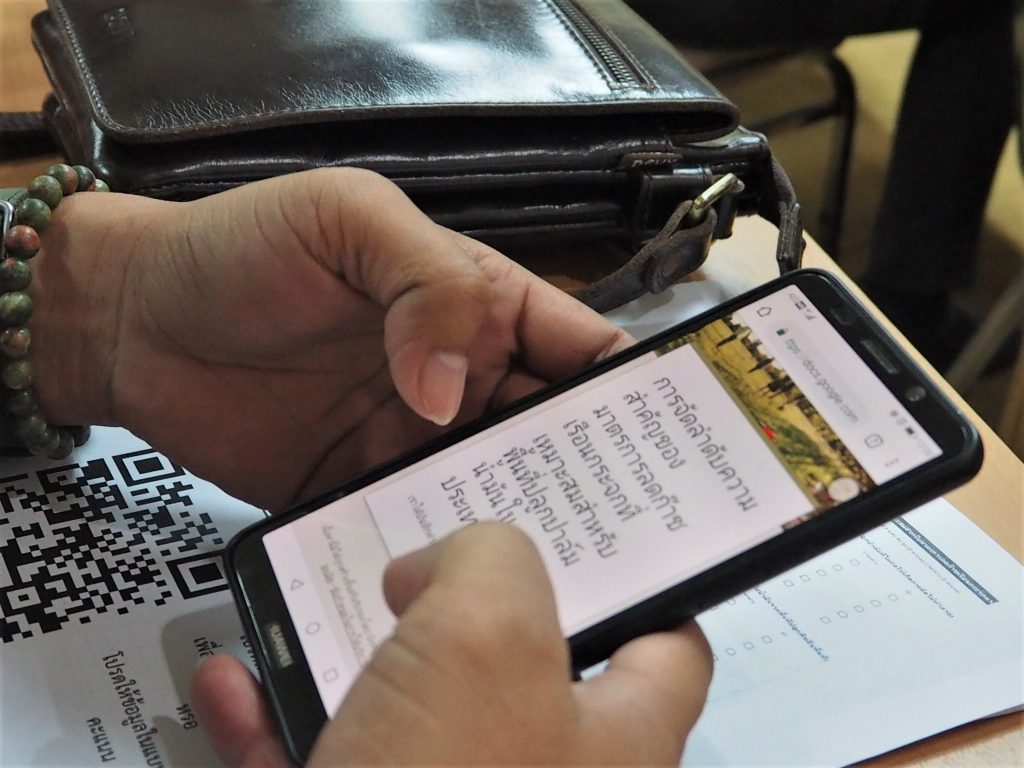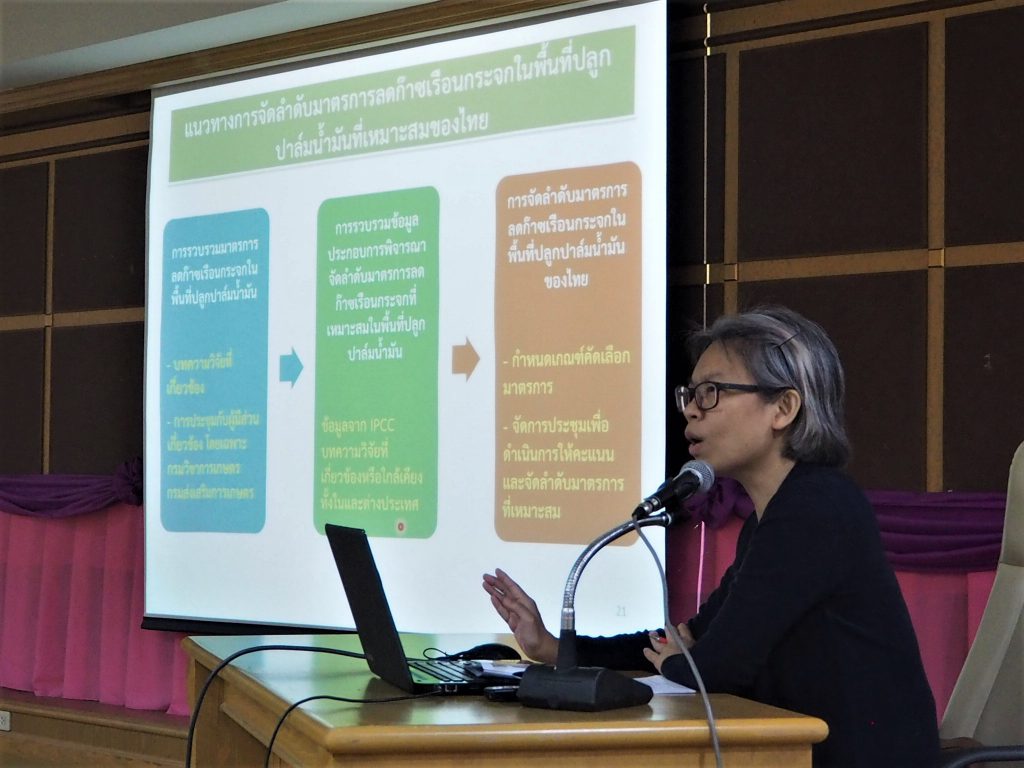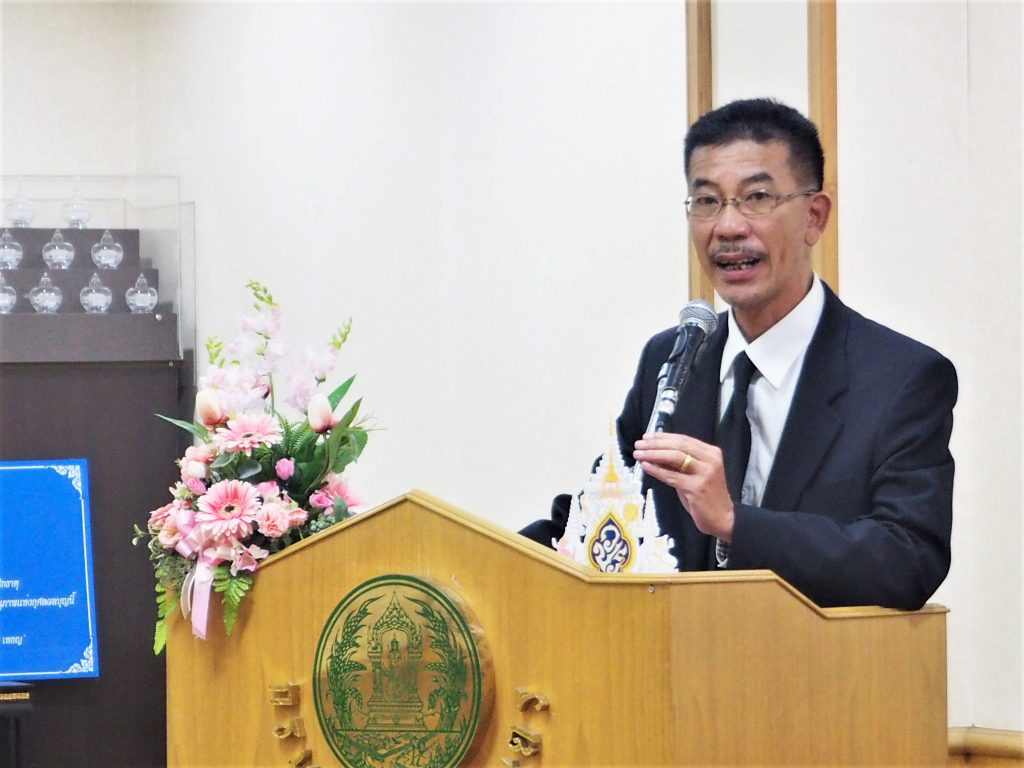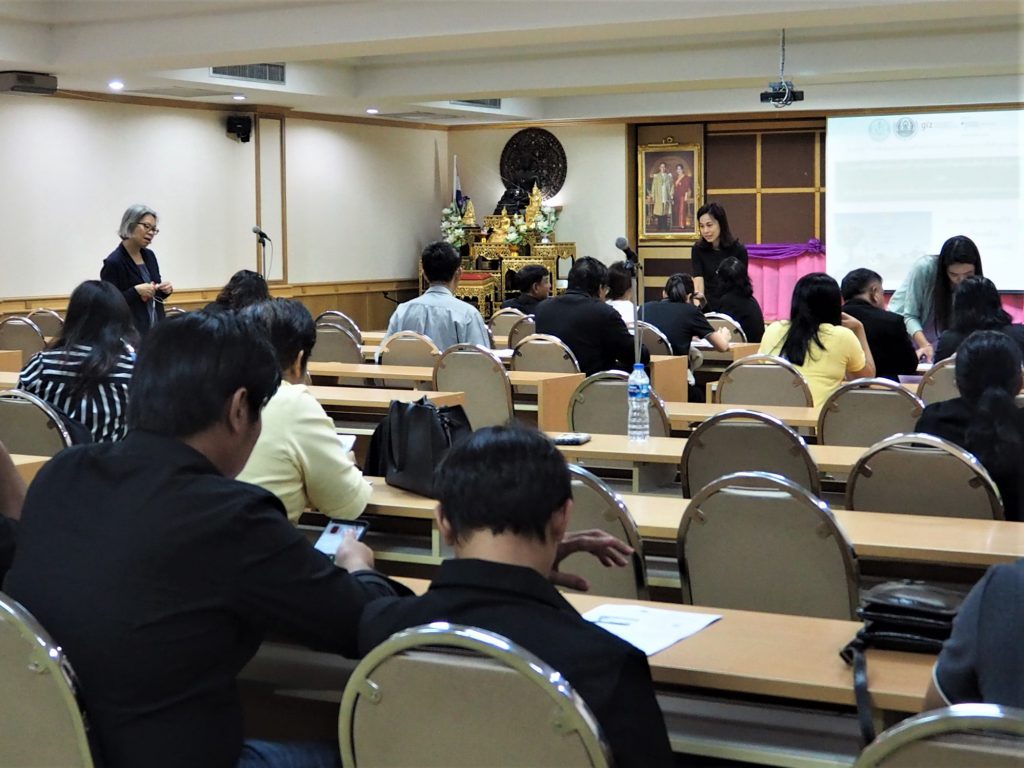
Writer: Kanokwan Saswattecha, Project Manager, Sustainable and Climate-Friendly Palm Oil Production and Procurement (SCPOPP)
As the climate changes at an unprecedented pace, the Thai government has encouraged the oil palm growers in the South to choose sustainable and environmentally-friendly farming practices to fight against climate change.
The consultation meeting on appropriate greenhouse gas mitigation measures for oil palm area in Thailand on May 30 at the Department of Agriculture (DOA), Bangkok has agreed to push for wider adaption of good practices among the local oil palm producers.
Among the existing 12 measures, zero burning, agricultural waste management, improving palm oil production by harvesting ripe fruits and applying organic matters in the oil palm plantation are ranked as the most appropriate measures to reduce the greenhouse gases from the plantation.
Palm oil producers in Thailand have long used these measures, which are aligned with the policies such as good agricultural practices (GAP) set up by Ministry of Agriculture and Cooperatives.
The Department of Agriculture (DOA), the country’s main agency in promoting the sustainable practices, will pick up the suitable measures to ensure greenhouse gas reductions and pass them on to the oil palm farmers in Thailand’s southern provinces – Surat Thani, Krabi and Chumphon.
These measures will not only reduce emissions but also improve the product quality, boost their crop yield and lower their production cost.
About 50 participants attended the meeting, many of whom were government officials from the Department of Agriculture, the Office of Agricultural Economics, the Office of Natural Resources and Environmental Policy and Planning and Thailand Greenhouse Gas Management Organization.
Oil palm small farmers and representatives from the small and medium-sized enterprises had also been invited to share their experiences and suggestion.
Surakitti Srikul, expert in crop production at the Department of Agriculture has stressed that the sustainable practices of the Roundtable on Sustainable Palm Oil (RSPO) should be promoted more among the government officers.
“The officials are not aware [of the RSPO-certified practices]” Mr. Surakitti said.
The SCPOPP is a project supported by Thailand’s Department of Agricultural Extension and the DOA in partnership with German International Cooperation (GIZ).
Through the project, GIZ has been working with Kasetsart University to come up with the scientific assessment of the greenhouse gases emitted from the palm oil plantation in Thailand, which both parties plan to use as evidence to support the government’s policy for monitoring and reporting the emission.
In 2016, Indonesia and Malaysia together account for nearly 87% of the global palm oil production. Thailand ranks third, producing 2.3 million tons of palm oil a year, according to Palm Oil Analytics.



